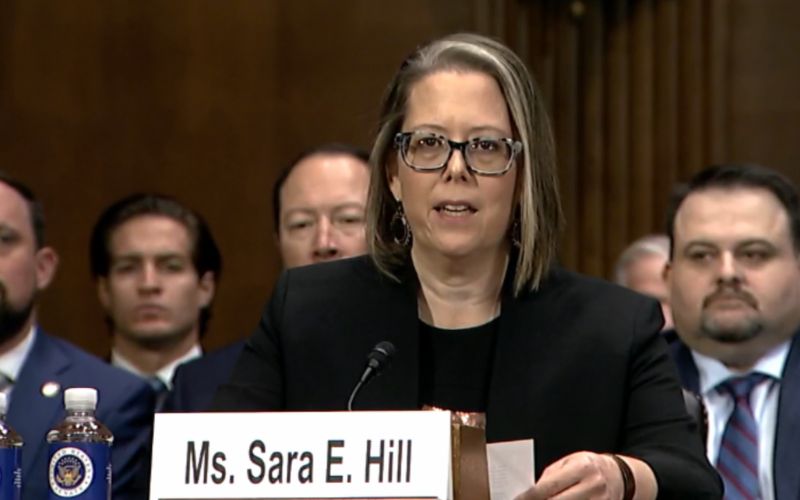
- Details
- By Native News Online Staff
With Oklahoma home to 39 federally recognized Tribal Nations, Hill's confirmation is a meaningful step forward in ensuring the federal judiciary reflects the communities it serves. As the only active Native American federal judge in Oklahoma, Judge Hill brings a critical perspective and deep knowledge of federal Indian law.
Hill served as the Cherokee Nation’s attorney general from 2019 until August 2023, during which she oversaw the restructuring of the tribe’s criminal prosecution after the Supreme Court’s McGirt v. Oklahoma decision in October 2019 removed Oklahoma’s authority to prosecute tribal members in a large swath of the state.
 Make A Donation Here
Make A Donation Here
“Judge Hill’s extensive experience serving the Cherokee Nation provides a strong background for her work in the Northern District of Oklahoma,” Native American Rights Fund Executive Director John Echohawk said in a statement. “Her confirmation is an important and necessary milestone and serves as a reminder that continuing to increase Native representation at a federal level is needed.”
Hill's confirmation has also been praised by the National Congress of American Indians (NCAI) President Mark Macarro.
“NCAI applauds both President Biden’s nomination of Sara Hill, and the Senate’s confirmation of her as the first-ever Native American woman to sit on the federal bench in the state of Oklahoma,” Macarro said in a statement. “Judge Hill brings with her an unparalleled experience in law and policy to our justice system, including a depth of understanding of tribal sovereignty that is far too often lacking on the judicial bench.”
Hill will be the 10th Native American Article III federal judge to ever serve in the judiciary in the history of the United States.
More Stories Like This
Native News Weekly (August 25, 2024): D.C. BriefsUS Presidents in Their Own Words Concerning American Indians
I’m a Minneapolis Postal Worker. This Is What I Saw.
Next on Native Bidaské: Inside Dark Winds with the Cast of Season 4
'Sovereignty Predates the United States,' NCAI President Mark Macarro Tells Tribal Nations
Help us defend tribal sovereignty.
At Native News Online, our mission is rooted in telling the stories that strengthen sovereignty and uplift Indigenous voices — not just at year’s end, but every single day.
Because of your generosity last year, we were able to keep our reporters on the ground in tribal communities, at national gatherings and in the halls of Congress — covering the issues that matter most to Indian Country: sovereignty, culture, education, health and economic opportunity.
That support sustained us through a tough year in 2025. Now, as we look to the year ahead, we need your help right now to ensure warrior journalism remains strong — reporting that defends tribal sovereignty, amplifies Native truth, and holds power accountable.
 The stakes couldn't be higher. Your support keeps Native voices heard, Native stories told and Native sovereignty defended.
The stakes couldn't be higher. Your support keeps Native voices heard, Native stories told and Native sovereignty defended.
Stand with Warrior Journalism today.
Levi Rickert (Potawatomi), Editor & Publisher

